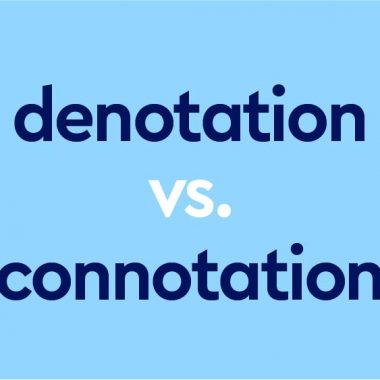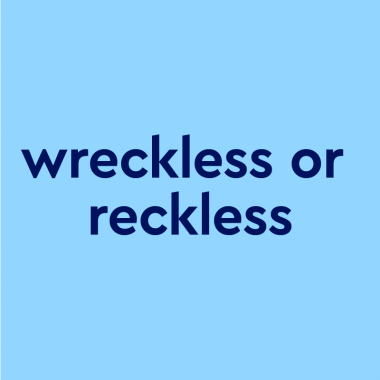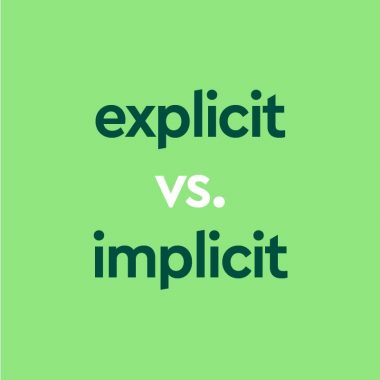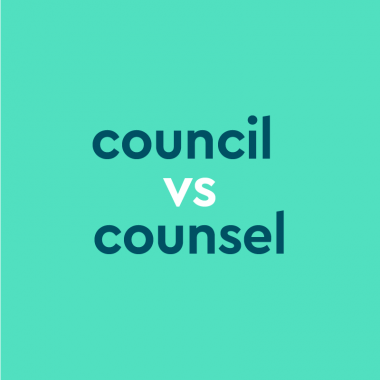Archives
-
The phrase in the same vein is used to indicate that two or more things are the same, similar, or closely related. When it’s used in the middle of a sentence, it’s typically followed by…
-
boreout
Boreout is an informal term for a state of dissatisfaction and demotivation that a person experiences due to being bored and unchallenged at work. It’s possible for the term to be applied in other contexts,… -
“Denotation” vs. “Connotation”: What’s The Difference?
If you’re in the business of defining and explaining words (which we are), it’s important to know the difference between denotation and connotation. These two terms are easy to confuse because they refer to related concepts. And every word can have both denotation and connotation. So what do they mean? In this article, we’ll explain the difference, give you tips for how to remember it, …
-
Are You Feeling “Wreckless” Or “Reckless”?
It’s common for the words reckless and wreck to be used in the same context, like in this sentence, for example: Many car wrecks are caused by reckless driving. But is wreckless a word? In this article, we’ll get to the bottom of the confusion between reckless and wreckless, including which one is used in common phrases—like those ending in driving and abandon. The adjective …
-
up to snuff
Up to snuff is an adjective phrase that describes something as reaching an acceptable or usual standard or being of passable quality. The phrase is usually used in the context of an expected standard being… -
“Explicit” vs. “Implicit”: What’s The Difference?
The words explicit and implicit can be easily confused. They sound similar, have the same ending, and are both abstract. Adding on to that, both words have multiple meanings—sometimes they’re opposites, and sometimes they simply mean different things. In this article, we’ll explain the different ways these two words are used, including which one means “implied” and which one means “expressed directly.” Don’t worry, we’ll …
-
“Council” vs. “Counsel”: Get Guidance On The Difference
It’s no wonder you might need advice when it comes to the difference between council and counsel. Not only are they pronounced identically, but they are both often used in the same contexts and sometimes even in the same sentence! However, these words do have different meanings, and one of them is always a noun while the other can be a noun or a verb. …
-
rage farming
Rage farming is a slang term for the political tactic of intentionally provoking political opponents in order to create or increase exposure for one’s group or cause. The tactic is especially associated with conservative and… -
hermano
Hermano is Spanish for “brother.” Just like the English word brother, hermano can refer to a literal brother or to a male friend with whom a person has a close bond. The nonliteral sense of… -
food coma
Food coma is a slang term for the state of feeling extremely tired or lethargic after eating a big meal. Some people use the term in reference to actually falling asleep after a big meal,…











